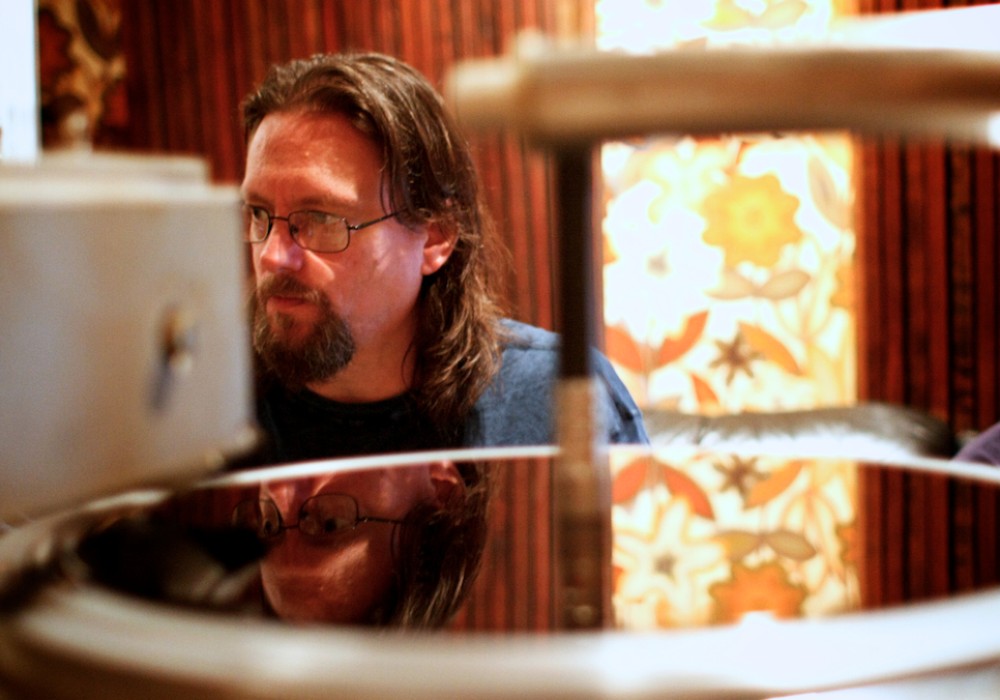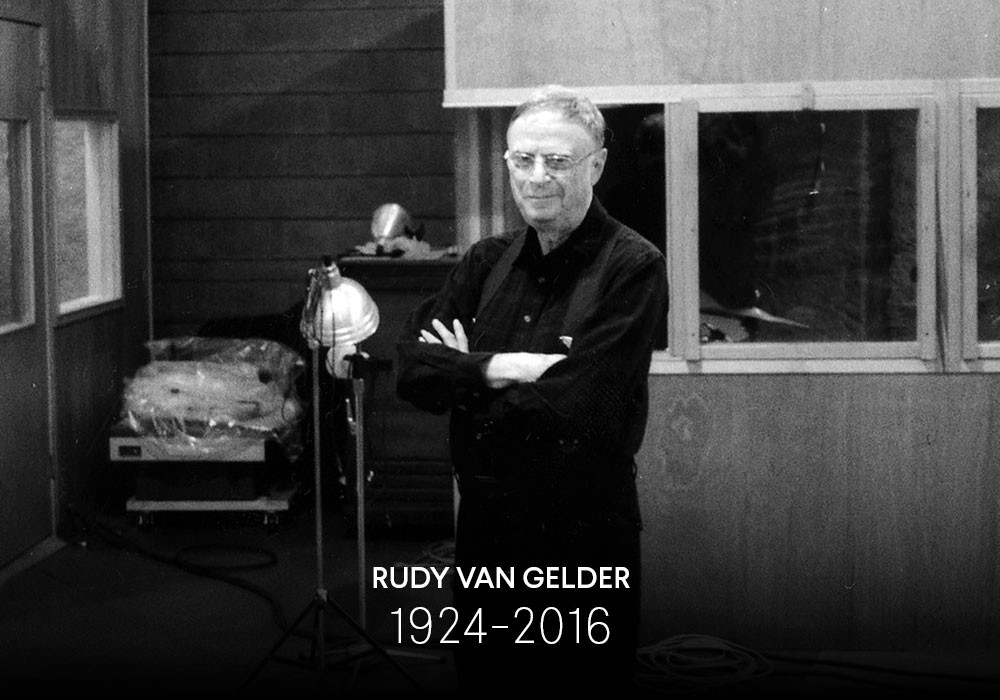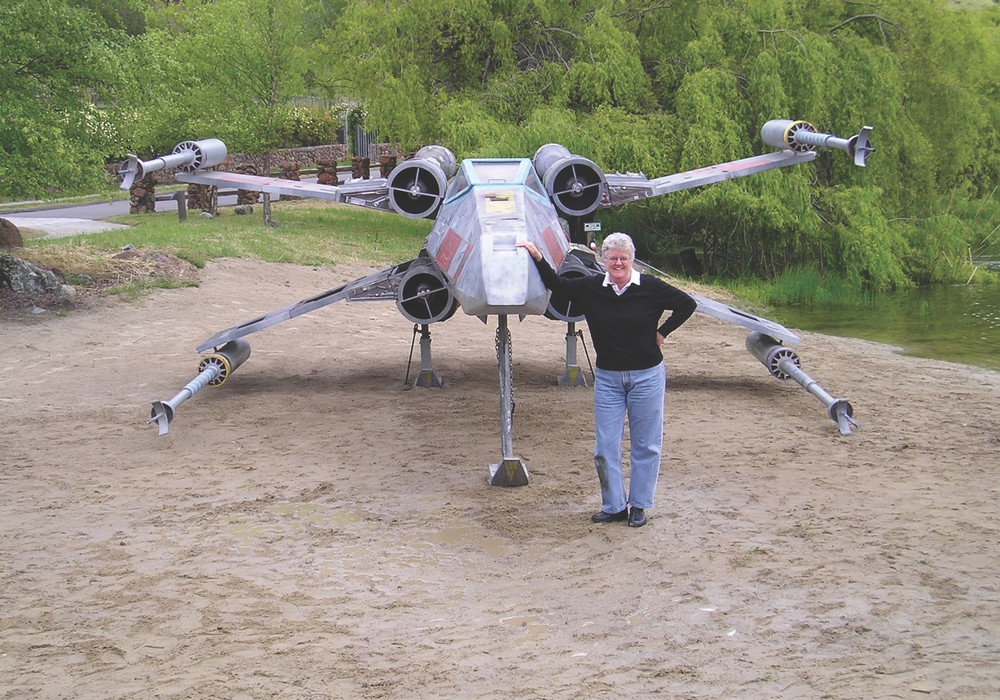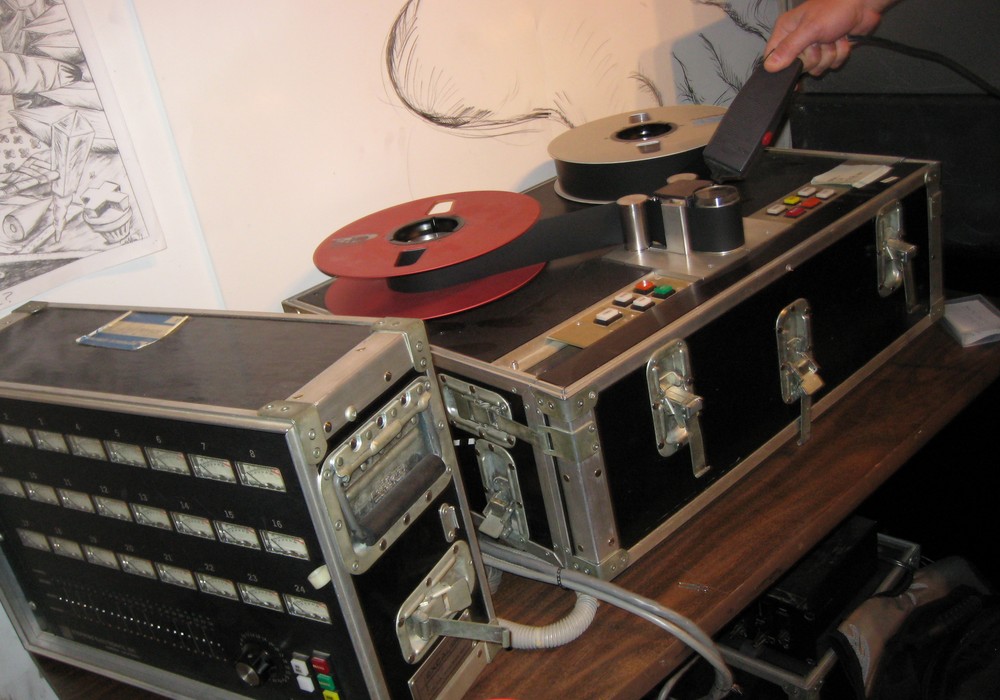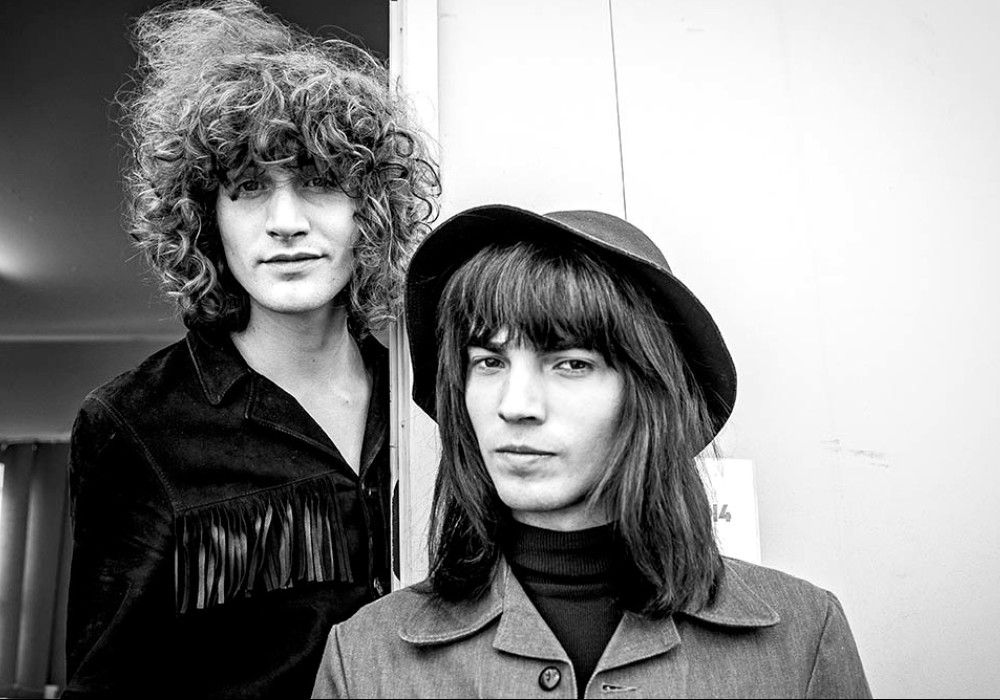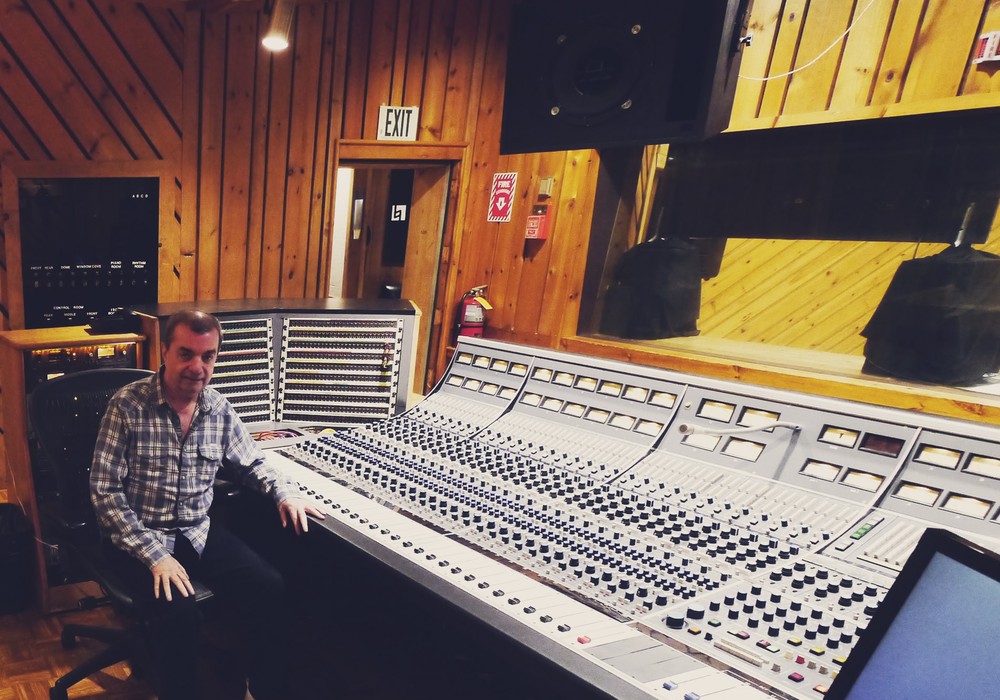Elizabeth Sharp records twisted bits of rhythm and melody under the name Ill Ease. After stints behind the drums in New Radiant Storm King and on bass in Skinner Pilot, Sharp decided to go solo and focus on her own, oddly catchy tunes. Over the course of four full-length releases, Ill Ease has served up themes of urban discontent that are all at once caustic and fun, like a rusting amusement park ride. With The Exorcist, Sharp has developed her wiry, off-kilter tunes into something lethal and infectious. I talked with her about recording, songwriting, and her need to continually challenge her routine.
First of all, I think it's really intriguing that you recorded 2001's Live at the Holiday Sin in a rented motel room in Atlantic City. How did that come about?
I wanted to get away from the city and my friend Thom Monahan, who I recorded with before, had a practice space there. We had a pretty basic mic setup and not much outboard gear, just maybe one or two compressors, and I think a preamp. I'd done a lot of bare bones 4-tracking before, so that was actually a step up. I did some of the recording at home too, with Pro Tools and an analog tape machine, a 1"16-track, Tascam MS-16.
What did you use in addition to the 1" 16-track?
I did some of the mixing in Pro Tools and I used a couple of SM57s and a couple of EV 635a mics — which are really small, trashy mics that make everything sound good — an AKG C3000 and a couple of answering machine microphones — which I threw in there for the ambience.
I've liked your stuff all along, but the latest record, The Exorcist, seems even better. It's really infectious and hypnotic.
Thanks. Those are two things I strive for. I recorded it a while ago, and my favorite thing about it is that it was mastered at Abbey Road. I got a tour of the studio while I was over there and I saw the rooms where The Beatles recorded. They have all these original EMI compressors. They do most things analog, but back it up to hard drive, so there's a huge server room. While I was there they were working on backing up all their different formats to digital. I hung out and drank some pints in the courtyard with the engineers for a while afterwards. They have a lathe cutter, so you can literally cut the album right there. It was cool to see it — it's a 1960s-looking contraption. The album itself was mostly recorded with David Barbe in his studio in Athens, Georgia, called Chase Park [Transduction]. It's a really great studio — I worked there before and I like it a lot. We had a fun time — we started off with drums with just four mics on the kit, and we're both into trying weird things — we got some cool sounds, I think. He has all vintage gear. I was using all his amps — he has all these Ampegs, the old style, pop up ones. So we got great guitar sounds and the bass was really good. He has old tube preamps. Everything was recorded straight through those with a little bit of compression, and the preamps sound really nice. As I said, a lot of his stuff is vintage, so you never really know how much of it is, "Wow, that machine looks really cool!" is what influences you to say, "Wow, it sounds great!"
Yeah, let's be honest, I think the way it looks has something to do with it!
He loves to tell stories about recording with somebody and they'll be like "That sounds like crap. Would you put some stuff on it?" and he'll flip on a bunch of lights and they'll be like, "Oh yeah, it sounds much better!"
The psychology of recording...
Yeah! Pretty much David and Thom are the main people I've worked with, so just having a good working relationship is great — because when I used to record with people where you go in and work with them for a week or two and don't really have any history or references, even if you're coming from the same place, it just takes a while to establish... Being able to describe music is such an abstract thing and just knowing that you have a common language, and you know what you're referring to is very helpful — it just saves a lot of time.
Did you bring your own drums to Chase Park?
No. Actually he has a set. I don't even think they have a name — it's like a mix. The only thing I brought was the cymbals, because I'm really picky about cymbal sounds. I've always been stripped down — snare, kick, cymbals without any toms. Maybe on one song or something I'll put in a floor tom, but generally I'm a big advocate of just using as little as possible. I went to school at Western Mass, where Max Roach was a professor for a while, and in one of his performances he played for an hour and a half on just a hi-hat.
Yeah I saw him do that too — it was really amazing. Sometimes you see drummers with a double bass kit and miles of gear and they don't even groove.
And I definitely think if you have more than three cymbals, you've lost control. One or two, maybe three, but those people who have four or more... it's ridiculous.
Were the drums your first instrument?
Yeah, that's what I've been playing pretty much my whole life, since I was twelve. But I also play guitar, bass and keyboards — and I always throw in some weird percussion, xylophones — things like that.
When did you start getting into recording?
Well I'd been using 4-track since 1990 or something. Then I shared a studio with a friend who had an 8- track and I started getting into it then out of frustration over recording at studios and always being depressed when it was done, just wondering, "Why doesn't it sound the way it does when you play it?" I've actually gone full circle, because I started recording with bands and wanting the recording to sound as much like that as possible, but now I pretty much start with the recording and then try to get the live stuff to emulate that in some way.
Are you still using the 16-track?
I still have the 1" 16-track, but I've moved out of that studio and I'm moving into a new place, so I haven't been recording on that much. I've just been shorthand recording things to computer in the meantime while I'm getting set up. For the last album, I did some of the tracks going back and forth between my place and David's place. He has a 2" machine down there.
How about Pro Tools?
That's what I use when I have to use digital. I still prefer the analog, but I'm in between studios, so I've been using Pro Tools a little for shorthand recording. I have some better plug-ins, so it's okay, but I still prefer analog. There's one album that I did pretty much completely in Pro Tools because I wanted to try it out for the first time. Being someone who doesn't use a lot of outboard gear, it's interesting to see the visual representation of things in Pro Tools. Looking at the computer screen transforms your understanding of the music when you see it all broken down into waveforms, and it really helps me understand what's going on with all the different gear. So that's been interesting to work with, but as far as the overall fidelity of stuff, I like to have it at least touch tape, so it has that tape sound. And then having many more tracks was nice, even if I didn't always use them. It's nice to have them there for like, unlimited numbers of tambourines. [laughs]
The tambourine orchestra?
Yeah, exactly.
What's your favorite piece of gear?
I'm lusting after EMI compressors and preamps.
You didn't steal anything from Abbey Road, did you?
No. [laughs] I'm not like a total gear head or anything. I use a few of those little RNCs. But I love the sound of my board — I have a Studiomaster Series III. It's got a five band EQ and it's from the late '70s / early '80s. It has a really fat upper mid range. I actually just got a backup [machine]. I was excited to be able to find it because it took a lot of searching on eBay.
So you're setting up a new studio?
A friend of mine is opening a place in Williamsburg [Brooklyn] that's going to be half venue and half practice spaces. He's already had a couple of shows there, but it's temporarily on hold while he gets all the city legal stuff worked out. There are four spaces and some good bands down there. !!! is there, and the drummer from the Yeah Yeah Yeahs. I'm really excited to record, because the room is two or three times as big as where I was before, and we built it out right — the ceilings are all angled, and the floors doubled with wood — so it'll be a much better place to record the basic raw tracks.
So will you be recording basic tracks there and going and recording with David again?
I think so. I have two different records I want to do. One is more along the lines of previous ones, but I've also been working acoustic, re-recording some previous songs and also doing some new songs just acoustic. On previous albums, there's a real thickness and a lot of different instrumentation, so I like the idea of doing the total opposite — trying nothing but guitar and seeing where I end up with that. Thom Monahan's done Beachwood Sparks records and stuff like that — he's moved to L.A. and has a studio, and I might do some of it there. So, I'm pretty much doing the basic tracks and writing the songs, and then I'll figure out what I'm going to do with it.
You've been spending a lot of time in England. How did that come about?
The last record and EP I put out were on Too Pure, which is an English label, and they brought us over there and to France a couple of times. The first couple of albums, Ill Ease was pretty much just a studio band, but I've been doing much more live stuff lately. We went over to England four times and played a week or two of shows there and in France each time. We went to Xfm, which was cool, and we went to Radio France. The have this huge room that's used mostly for classical stuff, but we were one of the first rock bands they recorded. Since then they've done some other bands. I think Interpol was there a little later.
I noticed you played with The Fall.
Yeah, that was like a dream come true. We did one gig in London opening for them. Whatever you've heard about Mark E. Smith is all true. He took over the band room for himself and wouldn't even share it with his own band. But he's still a great performer. His band is just a bunch of blokes who aren't even necessarily Fall fans, but they played the material really well and it was totally fun to be around them. They're great performers. The BBC did a documentary on them, and they've done something like nineteen Peel Sessions. We were actually over there when John Peel passed on — it was like a national day of mourning. He was a really popular person, even with housewives in the south of England.
When you travel do you do any songwriting?
Yeah, a little bit on the road this last time. We wrote a couple of songs on the road and stopped off in Athens and recorded a bit with David. It's been a challenge — my standard MO has always been starting with the drums and bass, but I've been working a little more with starting with guitar and with melody and things like that, branching out from pure rhythm, so we can do it more on the road with just guitars.
Was that an organic thing that happened, or was it a conscious decision?
Kind of both. It was a conscious decision in that whenever I notice a pattern, I try to break it, just to try new things. For a couple of records I'd always start with the drums, since drums are my primary instrument — but I like to challenge myself to branch out from that, to start with something other than the drums and have it be based not so much around the rhythm, but to build up the rhythms around the guitars. In that way it was a conscious decision, but it was a little bit organic in terms of it just happened naturally being on the road, and it being easier to work with guitars.
I know you're also a photographer and your photo books are in the library at the Museum of Modern Art. Do you ever write songs based on photos?
No I haven't, but that's a good idea!
Do you think the two art forms influence each other in any way?
They probably do. If I look back at a time when I was living in a more rural area, obviously the photos have that feel, and sometimes I think the music does to, as opposed to a more city thing. So in the big picture I can step back and see similarities like that but I don't think it's something I consciously think about.
When you play live do you play drums?
For the last couple of tours, I've been playing with Torben Pastore, who's the guitar player in the Lilys, and we switch around a little bit. Because it's just a two piece, it's pretty free to do whatever we want. We start off and usually build up some of the songs with me playing drums and we have bass loops, and then I do some guitar for some of the songs and he plays drums. We also have some sampled beats from Ill Ease songs and we jam to that, so we try a lot of different arrangements to keep it interesting.
How long have you been doing it as a two piece?
We've done the last four or five tours that way. Previous to that, I had a four piece — drums bass, guitar, and Fender Rhodes, and previous to that I had a three piece — drums, bass, guitar. I've been doing some acoustic stuff too, playing on my own with guitar and recording that way too, just to shake things up and challenge myself to try new things. But the two piece thing, for right now, seems like the most fun and the most free. Torben and I like to work the same — we both have kind of like a jazz approach to things, where we have a theme or a vamp for the song and we build around it in different ways every time we perform it. And I'm enjoying the freedom of that and the challenge of it too.
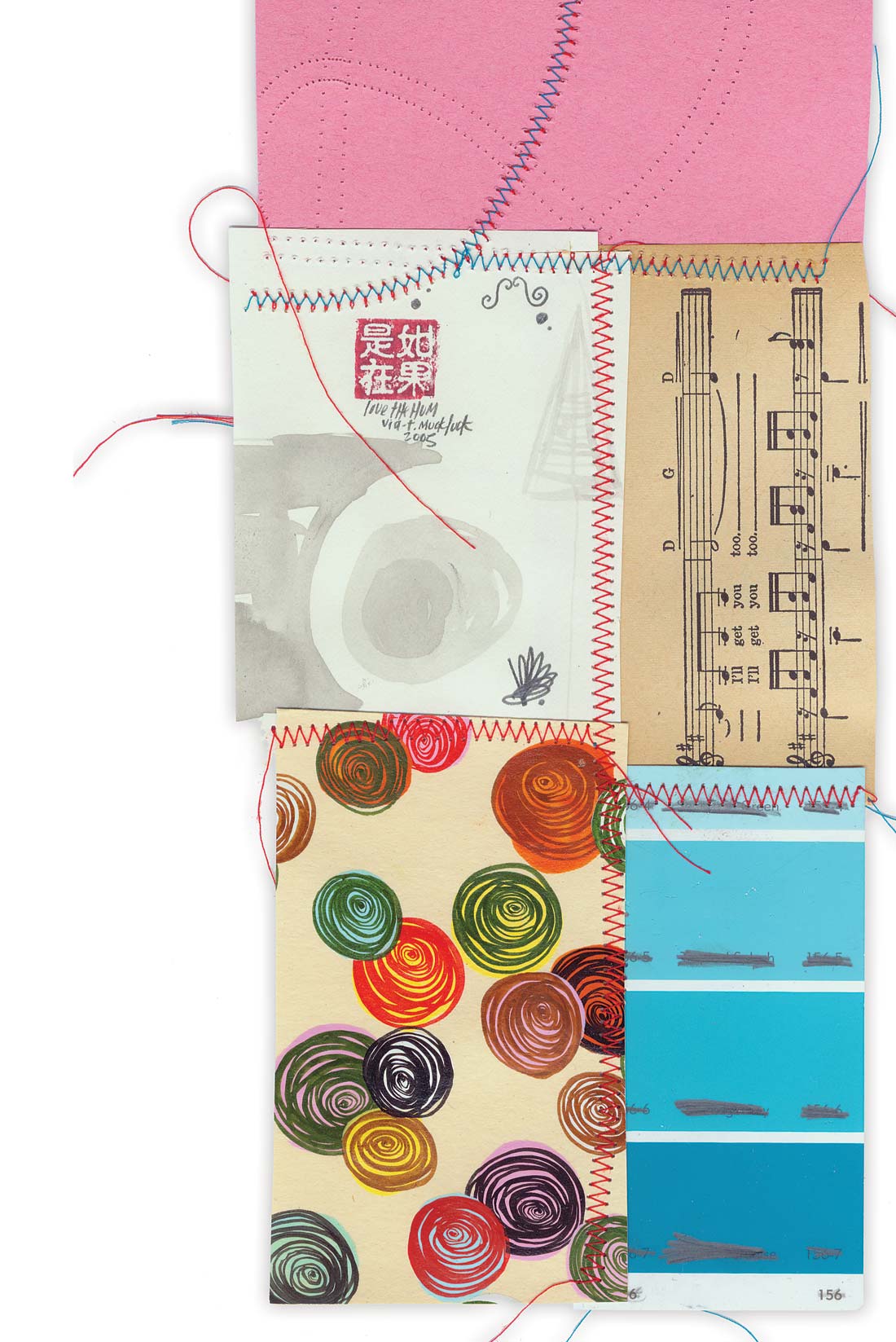

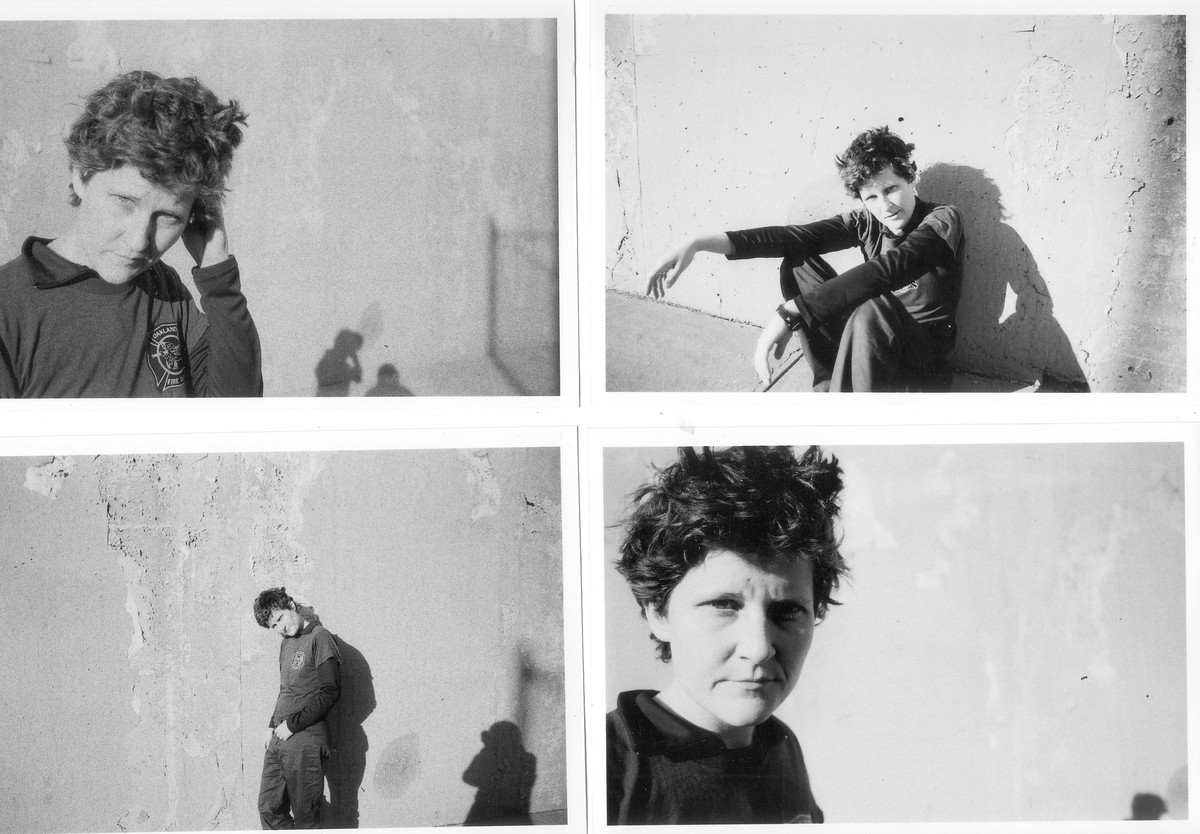
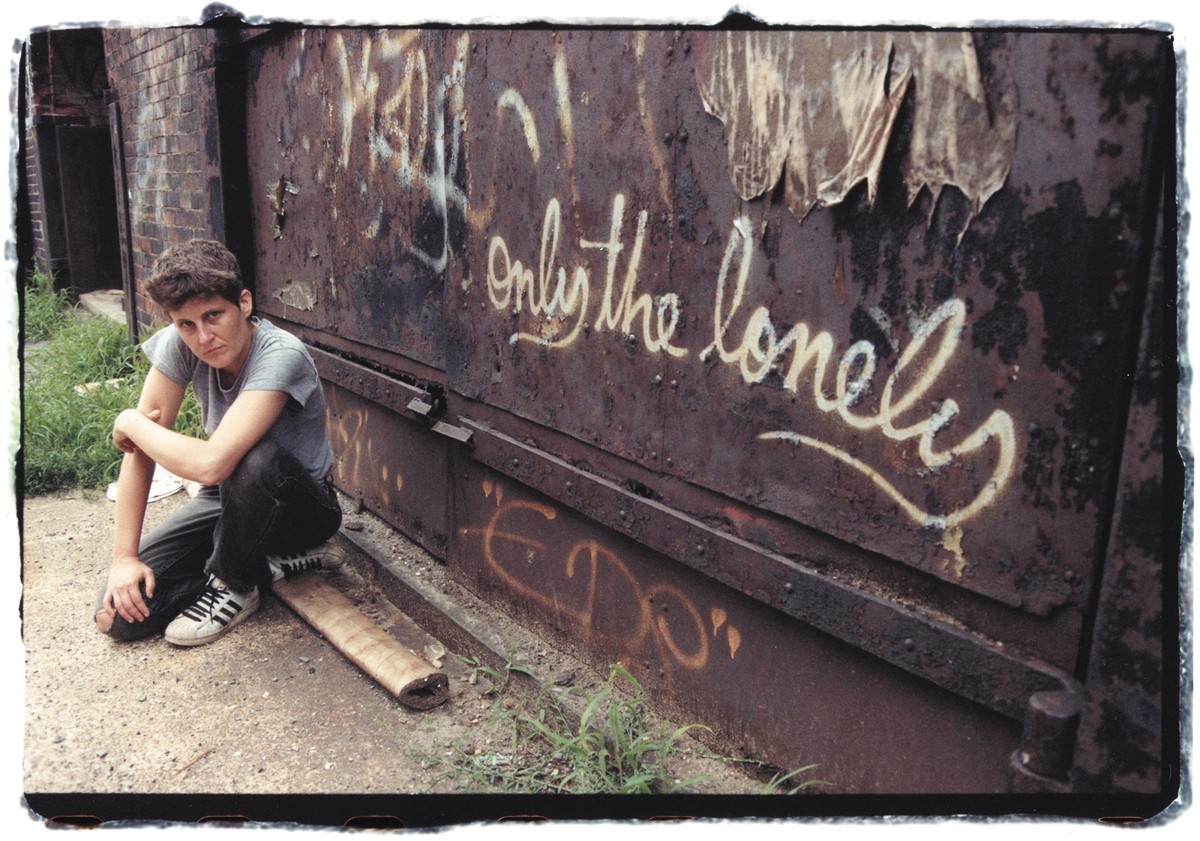
_display_horizontal.jpg)
